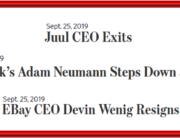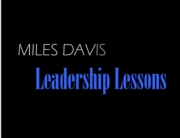A participant at a recent family business workshop was surprised when I said business planning should be part of the succession planning process. This founder’s business had a succession plan but lacked a coordinated plan looking at the future of their business. This founder’s surprise is a Lesson Found for all family businesses.
This exchange reminded me of a Harvard Business Review article, Avoid the Traps That Can Destroy Family Businesses. One trap the authors identify is “the [family] business can’t grow fast enough to support everyone.” The authors state: “An underappreciated problem is that families often grow more quickly than their businesses do. If a company founder has three children, each of whom marries and produces three more children, each of whom marries, within three generations there could be 25 people or more …. Many businesses simply don’t have enough work to employ every family member.”
Of course, not every family member will work in the business. But founders often wish to pass ownership shares to all their children. That still means the business needs to continue growing as a viable, if not lucrative investment for all.
In order for the family business to continue “to support everyone”, succession planning has to consider the business’ future. This initial business planning does not have to be extensive (as long as provisions are made to revisit the topic in greater depth). Some of the questions that should be addressed during the process include:
- How much growth is required for the business to support the next one or two generations (at minimum)?
- What is the likelihood the current business model will sustain this growth or should diversification be considered?
- What skill sets are needed to support this growth and how will these needs be met?
Including some business planning while planning succession has two other advantages. First, beginning the succession conversation with the less contentious topic of business planning sets a positive tone before delving into more emotional topics such as who takes over the leadership role and when will that happen.
Second, the business planning discussion provides a realistic assessment of the company’s future. That way all can recognize the ramifications of what the HBR authors define as the #1 trap: Guaranteeing every family member a high paying, management position in the company.
How well does your business plan align with your family’s long-term needs?
Life brings us lessons every day. Sometimes from expected sources. And sometimes from sources and situations we never would have thought possible. Either way, they are a gift found. I am fortunate to find these types of lessons regularly and wanted to share them with you with this weekly series of “Lessons Found”.
Did you recently receive the gift of a Lesson Found that has helped you with management, marketing or another aspect in business? I would love to hear about it. Comment below or send me an email to let me know.
ACKNOWLEDGEMENTS:
- Karen Young of HR Resolutions for feedback on this and previous articles.
- Pixabay.com for artwork.













































































